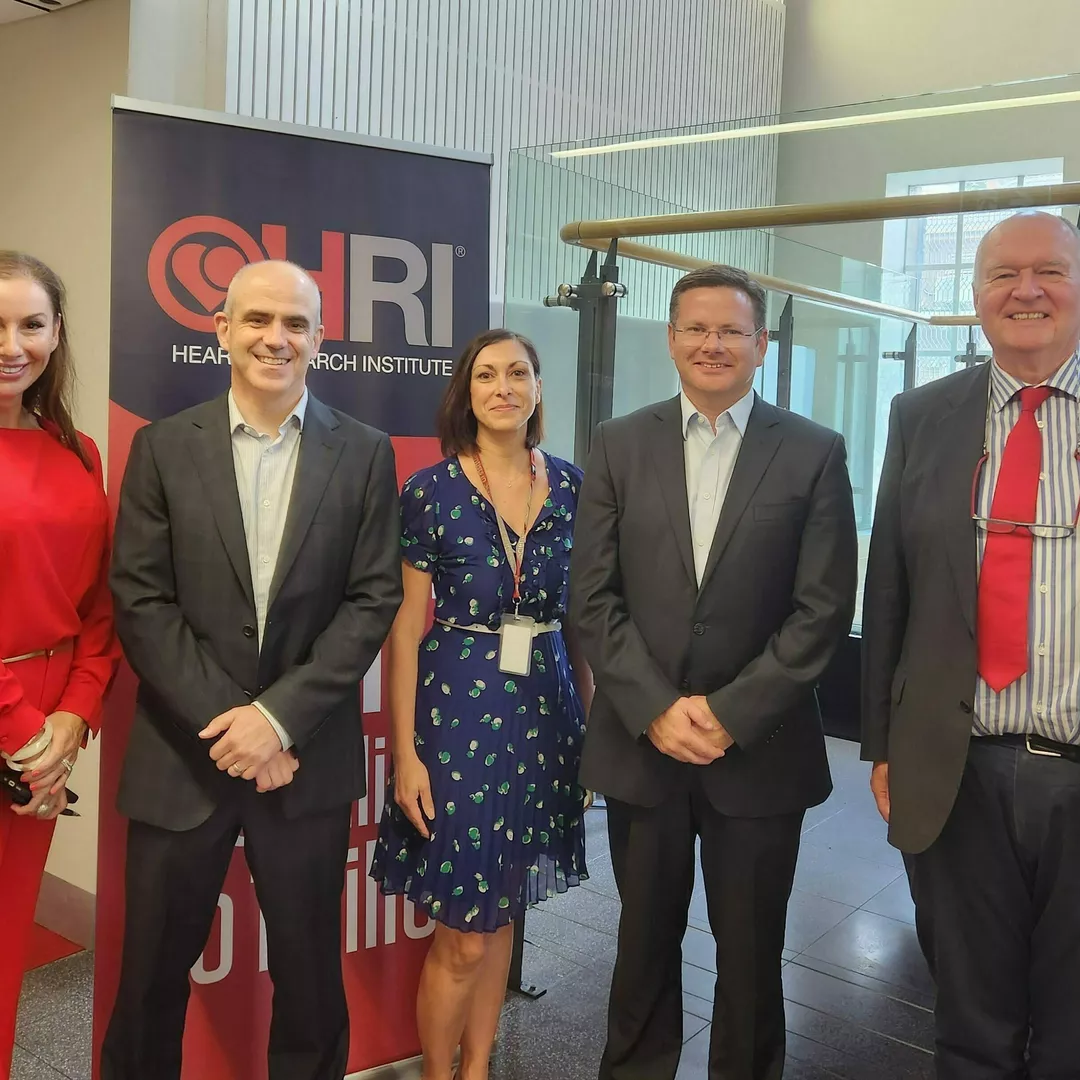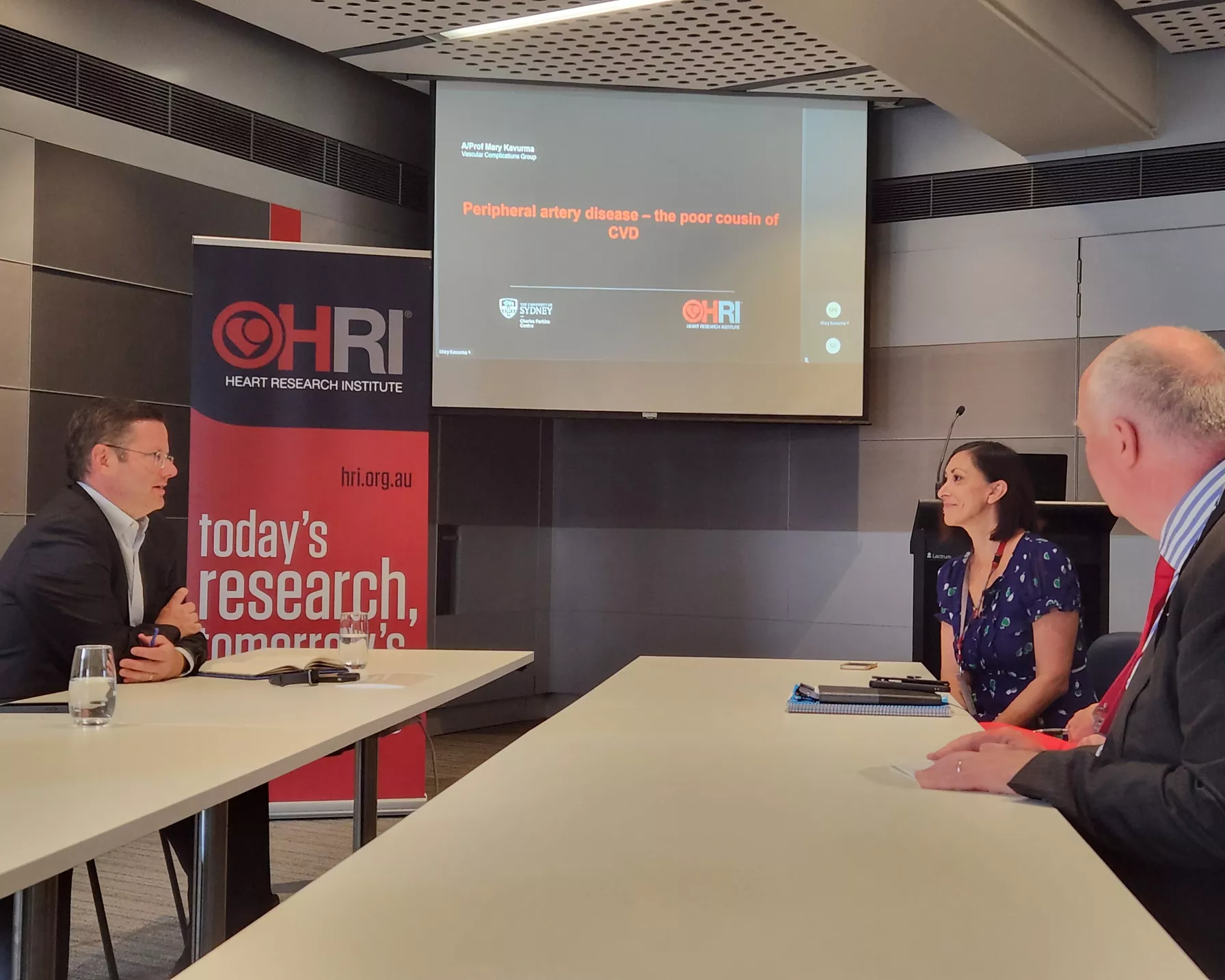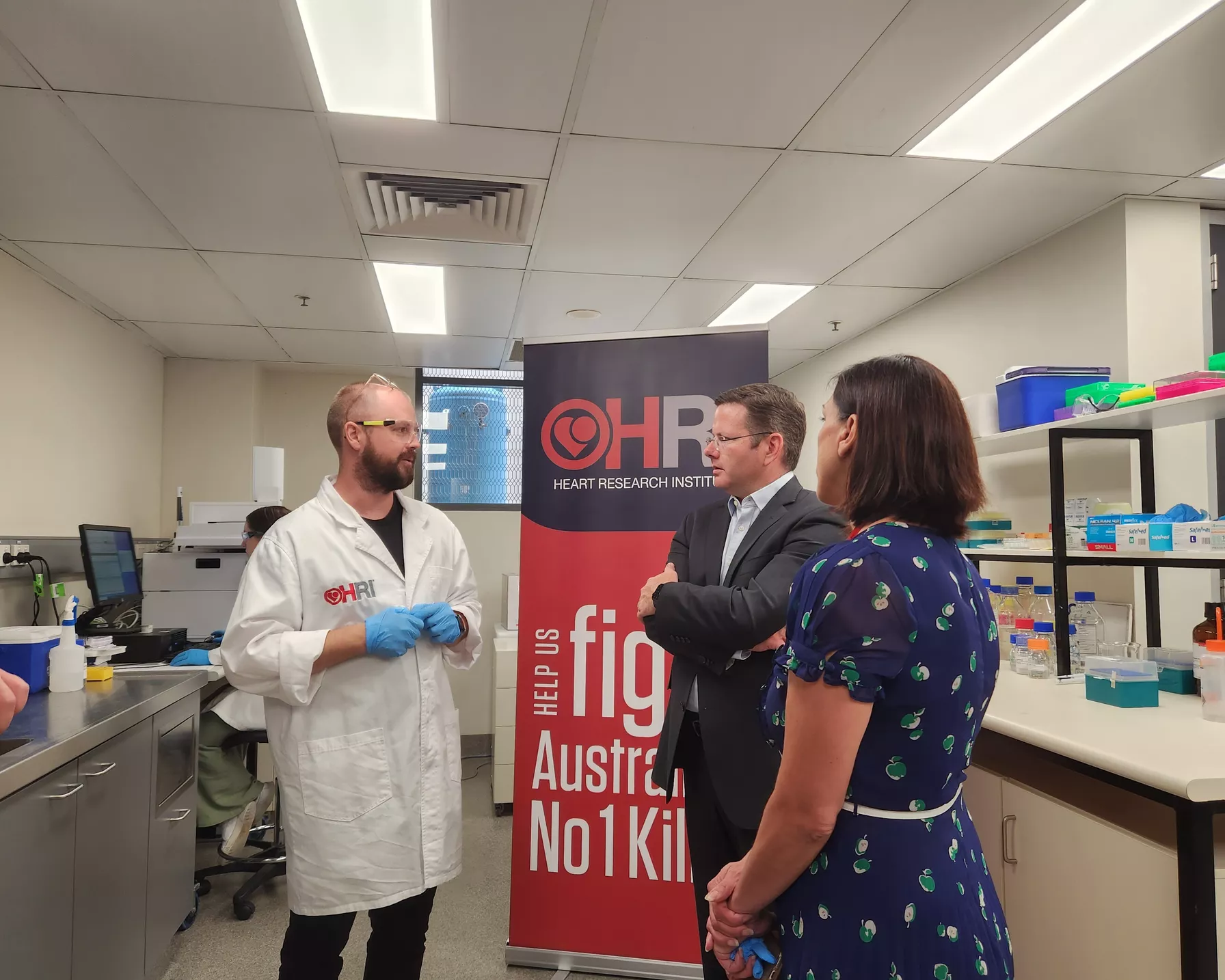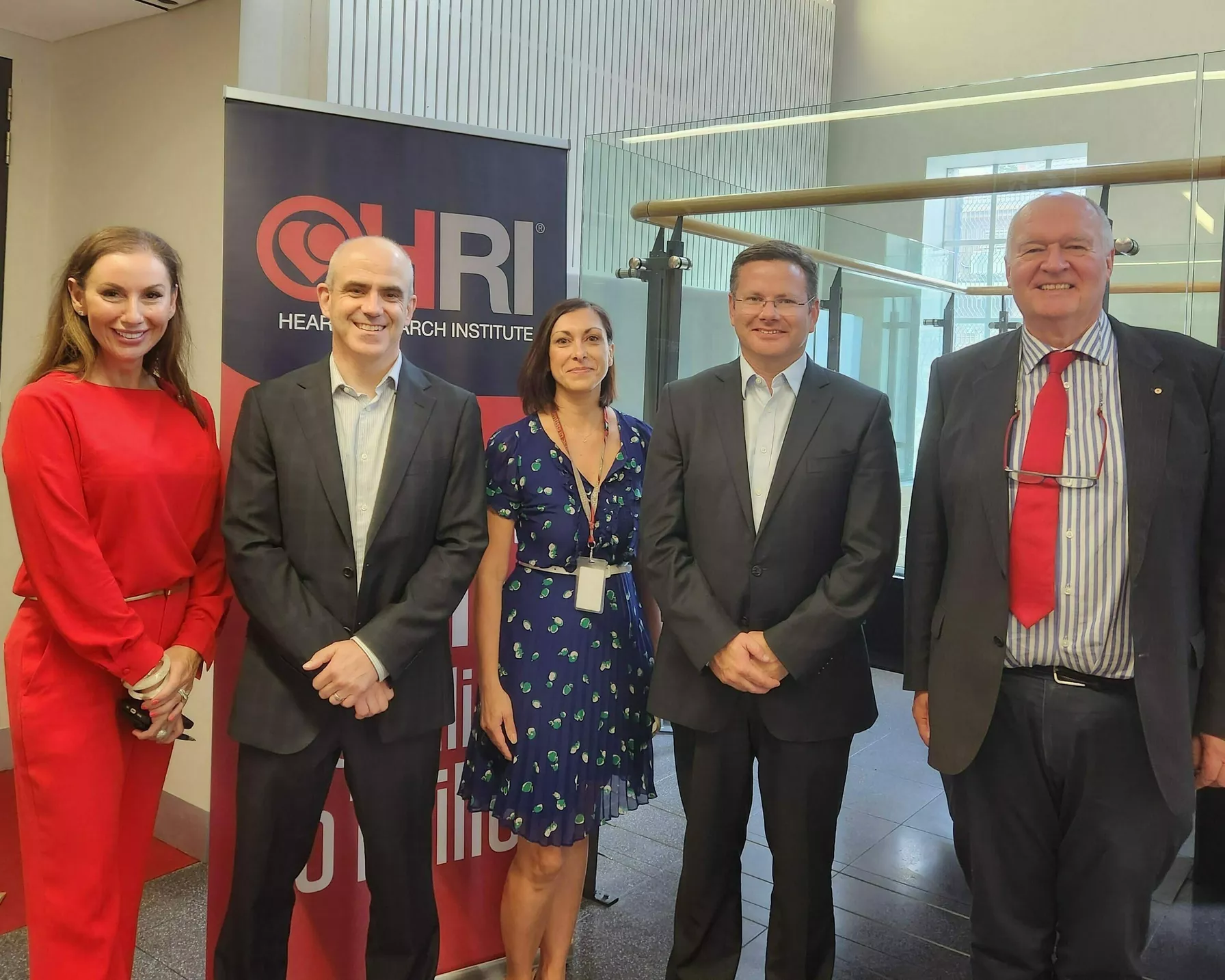The Heart Research Institute (HRI) has received a visit from MP Mark Coure to help drive awareness of HRI’s world-class research into cardiovascular disease (CVD).
Mr Coure, who is the member for Oatley and the Shadow Minister for Jobs, Industry, Innovation, Science and Technology, was welcomed to HRI’s purpose-built facility in Sydney’s Inner West on February 14 by CEO and Scientific Director Prof Andrew Coats AO, along with leading HRI scientist, Assoc Prof Mary Kavurma.
“With CVD the leading cause of death and disability in Australia and one of the biggest burdens on our health system, the need for support continues to be critical,” Prof Coats said. “HRI is dedicated to keeping hearts safe on Valentine’s Day, and every day, though our innovative research to help prevent, diagnose and treat CVD.”
Assoc Prof Kavurma, who is passionate about raising awareness for HRI and calling for advocacy, added that while there is a funding shortage across all research disciplines, she believes it is particularly evident in heart-related research.
And with one in six Australians – or more than four million people – living with CVD, this gap needs to be addressed.
“Without support for basic research and discovery science, we could see a significant impact on health outcomes for Australians and a loss of scientific talent.
“We thank Mr Coure for his interest in HRI and the life-saving research we carry out.”
Mr Coure said he found the visit incredibly valuable and that he is looking forward to working with HRI to help raise awareness about HRI’s research and the prevalence of CVD with his electorate and the broader community.
“I would like to thank HRI for hosting me and giving me an insight into their cutting-edge cardiovascular research,” he said. “It’s certainly made me more informed about the fundamental need for discovery science in the development of innovative new treatments for a range of CVDs, particularly lesser-known conditions like peripheral artery disease (PAD).
“There is no doubt that HRI’s research is saving lives and having a profound impact on the health of Australians.”
During his visit, Mr Coure was given a tour through HRI’s state-of-the-art research laboratories, where he was introduced to the different research groups and their scientific leaders.
This included meeting Dr Carmine Gentile and learning about his work with 3D printed ‘mini-hearts’, Dr Chris Stanley and his research into arterial function and sepsis, members of the Atherosclerosis and Vascular Remodelling Unit, and Dr Sergey Tumanov and the Fluxomics Centre.
Assoc Prof Kavurma also gave a presentation about her groundbreaking research into PAD, a type of CVD caused by narrow or blocked arteries in limbs that often results in amputation.
“Alarmingly, a limb is amputated every two hours in Australia, with PAD costing our economy more than $875 million a year,” Assoc Prof Kavurma, a leading specialist in PAD, said. “This rate is predicted to increase because of the diabetes epidemic.”
Assoc Prof Kavurma and her team are currently working on several projects to help improve outcomes and quality of life for patients with PAD and will soon launch NSW’s first Centre for PAD.
“PAD affects almost one in every five Australians, with about 50 per cent of people with PAD showing no symptoms, leading to under-diagnosis and under-treatment,” she explained.
“It’s just one example of a condition that would benefit hugely from more basic science research.
“Basic discovery research for PAD is behind coronary artery disease, and people are suffering for it,” she added. “As it stands, there are no pharmacological treatments that improve the disease. Current therapies only treat the symptoms – making the research we do at HRI critical.”
From left: Katrina Dowling (HRI's Director of Development, Communications and Philanthropy), Tim Gainsford (HRI's Chief Operating Officer), Assoc Prof Mary Kavurma, MP Mark Coure, Prof Andrew Coats AO.




